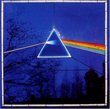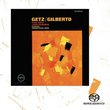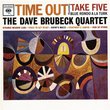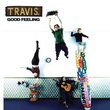| All Artists: John Coltrane Title: Blue Train (SACD Hybrid) Members Wishing: 2 Total Copies: 0 Album Type: Hybrid SACD - DSD Genre: Jazz Style: Bebop Number of Discs: 1 SwapaCD Credits: 1 UPC: 724354175725 |
Search - John Coltrane :: Blue Train (SACD Hybrid)
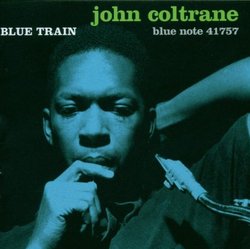 | John Coltrane Blue Train (SACD Hybrid) Genre: Jazz
|
Larger Image |
CD DetailsSimilar CDs
Similarly Requested CDs
|
CD ReviewsHe needs no cushion - he's got his launchpad Kevin W. Celebi | Greencastle, IN | 05/12/2008 (5 out of 5 stars) "If there were a list of the ten jazz albums that non-jazz listeners own, "Blue Train" would be number three behind Kind of Blue and Time Out. And there's a reason for that - catchy title tune, no if's or but's about it. The opening melody is memorable, singable, and is the kind of song that never leaves your mind since you heard it at age four. After the melody statement and Coltrane's torrid flights to the seventh circle of the universe, the rest, to non-jazz listeners, is the same, but to jazz aficionados, it leads us into the land of Gods. "Blue Train" is an album of four songs that become instant jazz standards along with a shockingly caressing treatment of a standard into a ballad, filled with great musical statements; it is such a pity that Alfred Lion and John Coltrane signed a deal for only one record, knowing how much quality and quantity Blue Note Records provoked from its artists. The improvisations are remarkably fair and, yes, the sole criticism that you've heard is true: Coltrane blows his bandmates away and deals no apologies for doing so. The Blue Train Sextet (did they tour as the BTS?) was equipped with powerful horn soloists and a rhythm section very well acquainted with the art of swing. Lee Morgan, playing on his beloved bent-up Dizzy-style horn, played some of the most incredible solos, from the standpoint of virtuosity and musical taste, of his career (matched only by his brilliance on Moanin' and The Sidewinder). Coltrane, playing like an unchained animal released from the haven of his drug recovery bedroom, simply doesn't play a note that isn't remarkably fair. Curtis Fuller, the young upstart trombonist from Detroit, plays fair musical statements as well, pleasing with full vibrato and wise rhythmic decisions. The lamentably underrated Kenny Drew, aside from generously volunteering to try to either keep up with Coltrane or hold the fort during his improvisations, also offers elegant solos characterized by a merry touch. Don't ever forget Paul Chambers, probably jazz's best timekeeper. Philly Joe Jones, the restless master of the drum kit, was still at the peak of his powers in Miles Davis' quintet and his playing on this record shows why. The sextet is robust and relentless, and they could have remained in the studio and recorded fifty songs if they had wanted to, rather than just five. "Blue Train" opens the album in the "listen to me, I'm Blue Train" fashion, ominous diminished whole tone chords mysteriously opening the way, before the straight four groove of the classic blues serve as the launching pad for Trane's jump into the stratosphere. Trane most likely filled his glass (and his horn?) with wine before the tune, because the brilliance of his solo could have only been provided by a drunken Trane (note that he didn't actually get drunk at this session - it's simply a suggestion for the reason of why he is able to play so well). Nearly his entire solo is double-timed, with not a single note left out, such rhythmic perfection. Harmonically speaking, he climbs all over the Eb dominant scale, but when the turnaround approaches, he gobbles the tri-tone substitution right up and climbs all over that, too (mainly, an A7 substitution leading to an Ab7). I hate to say it, as the other sidemen have been criticized in "Blue Note Records: A Biography" for "simply, just playing the blues" on their solos, but that is essentially what they do. But just to say that they only play the blues is not doing their work justice - Morgan explodes into a frenzy of a chorus of straight-up sixteenth notes, for instance, and Fuller milks the blues scale for all it has in the timbre of a trombone. The entire song is a romp through the blues with harmonic edge and ensemble power. "Moment's Notice," obviously, is emblematic of Trane's love for the alchemy of chord changes and looks forward to his landmark Trane changes. However, it is also rhythmically appealing and its pedal point builds up tension, joy, and, yet again, another base for Trane to explode to the rim for another shattering dunk (sorry, I'm running out of metaphors for his boiling solos). In his improvisation, Trane both sounds youthful and young, plowing right through the changes with ferventness, and old, displaying such harmonic wizardry that he could be the man who devised jazz himself. Fuller struggles through his solo (but, hey, at least his struggles gave the song its title), and Morgan does all he can with the song's ridiculously difficult structure with his Clifford Brown tricks. Another added bonus is some arco work by Mr. PC. "Locomotion" is another foray into, how about this, the blues. The twist is the chromatically descending bridge to make things interesting. Trane must have been drunk again (or just possessed) for his solo on this one, as his technical fluency propels him right through his chord changes, and his combination of bebop lines and tri-tone substitutions with flights through the avant-garde gives the song its sheen - the best part is that every note that he hangs onto has a bit of vibrato for extra measure. Lee Morgan's eight-bar break entrance to his solo was heralded by Mark Levine as "possibly the best break in jazz improvisation to be recorded." Like I said, the 19-year old Morgan brought his fiery young heart to the studio and left nothing behind, and he is recorded particularly well, with some of his higher notes being mixed with some reverb to add emphasis. "I'm Old Fashioned" isn't played as much as it should be, but on Blue Train, it's full of beautiful song. Trane was very much "sober" for his rendition of the melody, embellishing it with beautiful grace notes and Kenny Drew's Bud Powell-like accompaniment filling the song's cup with honey. This is Fuller's chance to shine, as the trombone sounds perfect in the intimate, slowed-down settings of the jazz ballad, and Fuller's full-bodied tone sounds wonderful and he even has some fun quoting "My Funny Valentine." However, the show is stolen by none other than Lee Morgan, who plays a solo that is so melodic that I thought it was perhaps another melody statement, or written down. He plays the last eight bars of the melody with his sassy embellishments, and delicately ends the song on its major chord, joined by the entire ensemble (including more arco Paul Chambers). As if Lee Morgan was going to relinquish the spotlight that he just stole, he keeps it by stating the melody to "Lazy Bird" and then guns into the first solo. "Lazy Bird" is a ii-V7-I based melody that is the closest to bebop you'll get in this album, and Morgan has fun blazing his bop lines all over its chordal structure. As for Trane, he was drunk again, but this time drunk with golden wine, playing his best solo of the entire record. Listen to his bop lines (sounding like Charlie Parker slowed down and an octave below), his intervallic leaps, his splashes into the high register, and his gorgeous vibrato. If there was a way to end this album properly and on a relaxing (but not anticlimactic) plateau, Lazy Bird was the answer. Of course, we live in the 21st century, so the original album is never enough. "The Ultimate Blue Train" (I thought it was ultimate enough already) provides alternate takes of the first and last tunes, as well as being loadable into computers for an interview with a rather golden-aged Fuller. Since this is John Coltrane in question, and one that was arguably intoxicated in the studio, you'll want to hear these alternate takes for his improvisations. And where did he get his wine? From the ancient casks of the previously mentioned Gods? We'll never know, but we'll always be able to rise and drink the beauty of Blue Train ourselves. Maybe the non-jazz listeners will enjoy it for its faring forth to their ears as an irresistible collection of melody and "cool music," but to me as a jazz musician, I'll never forget its kindling of my love for chordal brilliance, its improvisations bringing rise to the magic sun. kc" The Ultimate D. Clements | Utah | 01/11/2007 (5 out of 5 stars) "One of the finest Jazz albums of all time and almost certainly Coltrane's best release. It's short, but it's almost seamlessly beautiful from start to finish. If I were to recommend five Jazz albums to anyone, this would certainly be included." I often wonder. fluffy, the human being. | forest lake, mn | 04/11/2007 (5 out of 5 stars) "i have actually met people who live without this album. whenever i think about that, i shake my head in wonder. i don't know how they do it."
|

 Track Listings (5) - Disc #1
Track Listings (5) - Disc #1